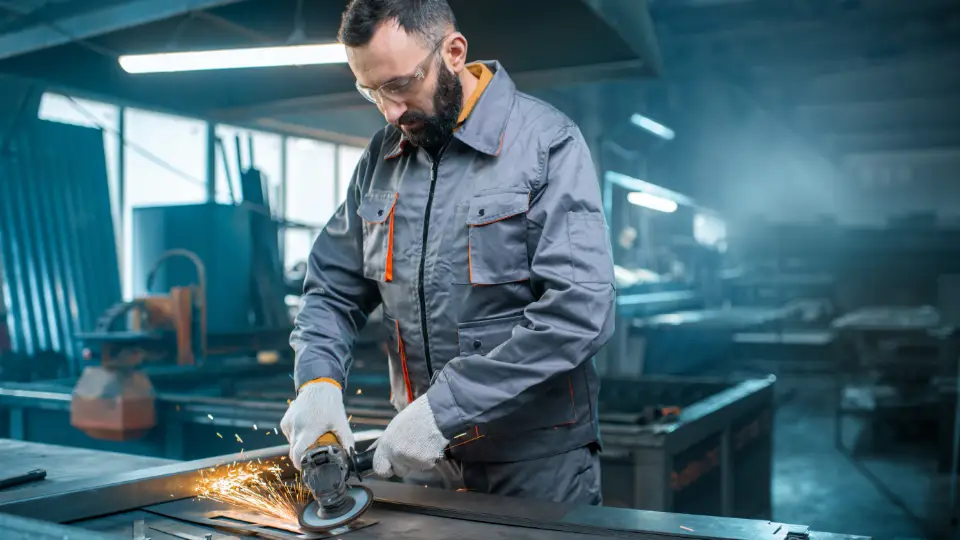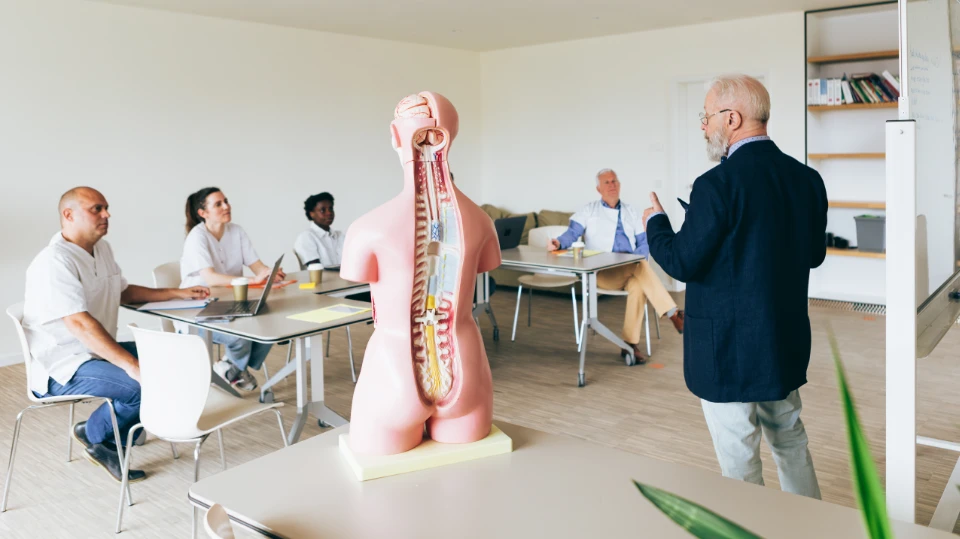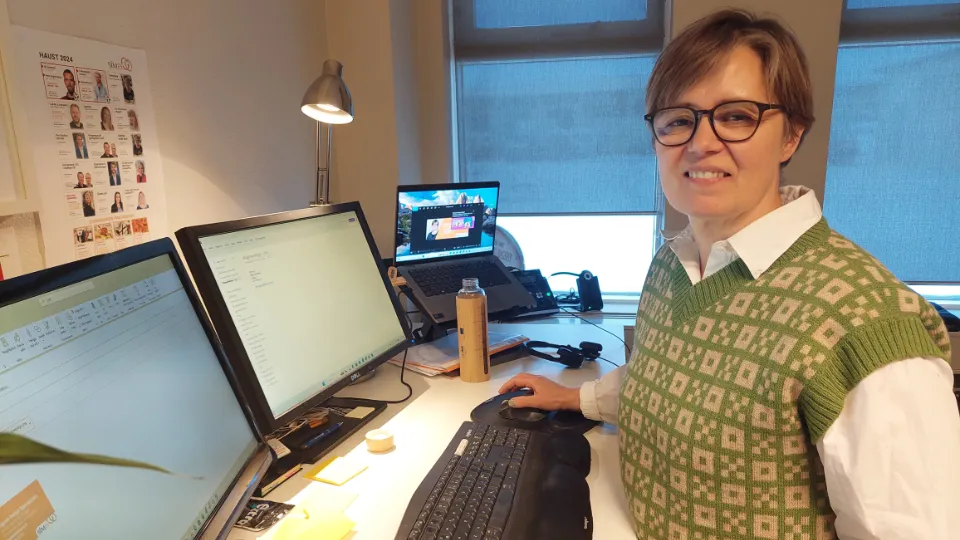This article has been translated to English by EPALE Norway. EPALE is a multilingual open membership community for teachers, trainers, researchers, academics, policy makers and anyone else with a professional role in adult learning across Europe.
The need for skills is great and increasing in many areas, and skills are not something that can be charged and filled up overnight. It is a long-term effort that must be continuously worked on. New and significant challenges both in individual workplaces and in society require constantly new skills and knowledge. The climate challenge demands new, green solutions, and consequently, a lot of new skills. New technical solutions, new equipment, and new management programs mean that employees need almost daily skills development and replenishment. This is also true in everyday life, with new gadgets that require the ability and willingness to learn and practice how to operate them.
More than an annual event
– Has the EU Year of Skills really accelerated skills development in Europe?
– It is hard to say. But I believe that the attention on skills and the various initiatives started during the European Year of Skills represent more than just an annual event. It marks a continuous effort towards a more adaptable workforce. Norway’s commitment to lifelong learning, the right to retraining, and our strong tripartite cooperation are important elements in this work, says Margrethe Marstrøm Svensrud from the Directorate for Higher Education and Skills (HK-dir). She has been responsible for coordinating the follow-up of the Year of Skills in Norway.
The European Year of Skills:
Duration from May 2023 to May 2024.
The effort was to strengthen Europe’s competitiveness, increase participation in the labour market and improve people’s skills and competencies. (HK-dir)
A goal to change attitudes
– Several of the EU’s initiatives have been specifically aimed at the workplace. There have also been extensive information activities, and the message is believed to have reached several million individuals and businesses across Europe. The goal has been to change people’s attitudes towards skills development and to get more people to participate, says Svensrud.
“Competence plus” and industry program
There have been several significant efforts in skills development with government support in Norway over the years. One of the initiatives is “Competense Plus”, which provides businesses with support for training in basic skills such as reading, writing, arithmetic, and digital skills. Over 100,000 employees have received training at work through this scheme. HK-dir, who manages the funds, points out that it is “documented that the training leads to more motivated and self-sufficient employees. Training has led to a better understanding of instructions and routines, smoother operations, and better customer service.”
The industry programs are another scheme that contributes to increased skills development in selected industries. Free courses and educational offerings are provided in areas and topics that the labour market needs, and which the labour market itself helps to develop. The industry programs are a collaboration between the state, the employers’ unions and the employees’ unions.
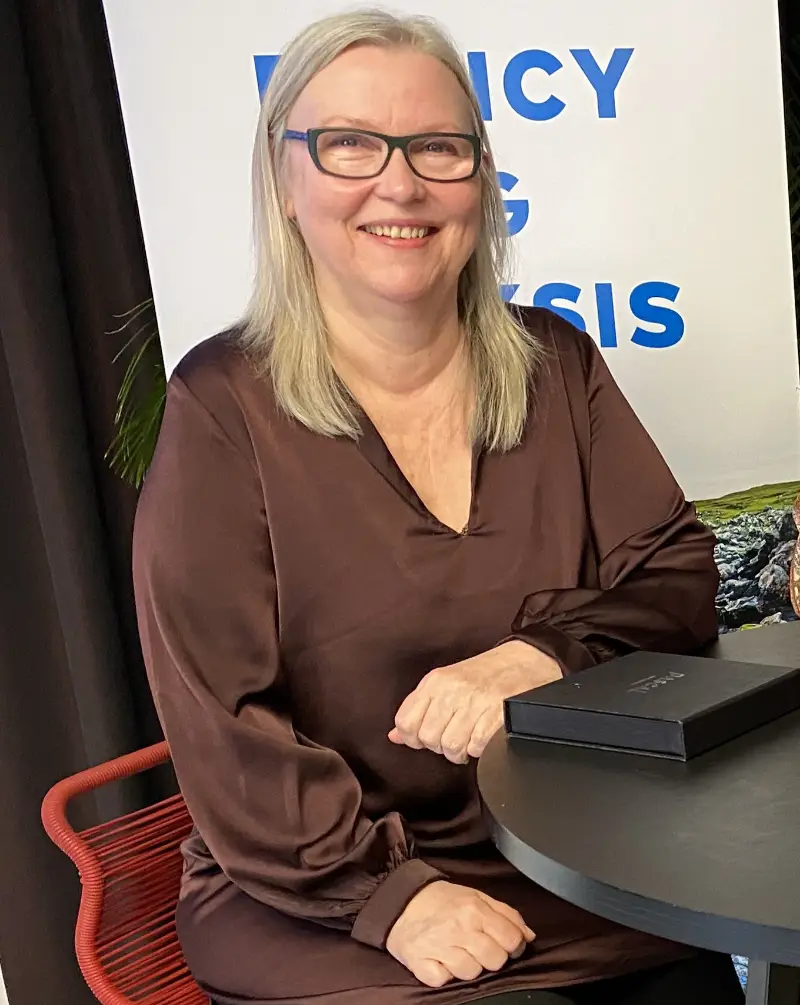
The Norwegian Competence Reform Committee:
The Competence Reform Committee was established in the summer of 2023. The committee’s mandate is to investigate how Norway can succeed with lifelong learning in the workplace.
Increase the pace and scope of skills upgrading
– There has been a focus on skills development in Norway for many years. Has anything new been added during the European Year of Skills?
– There is always a lot happening in the Norwegian labour market and in the tripartite cooperation related to education and skills. For example, this year’s wage negotiations addressed demands from the employee side for new arrangements to increase the pace and scope of actual skills upgrading of employees. Several industries have reached agreements on good solutions that are now to be developed and implemented, for example in the industry and construction trades, says Benedikte Sterner, special advisor at the employees’ union, LO.
Social needs
– The social partners have worked together on skills development for many years. Does this produce the desired results, or are new measures needed?
– The increasing skills needs driven by known factors, such as green transition, digitalization, inclusion in the labour market, and the need for longer working lives, complicate the picture, Sterner points out. She refers to the societal needs:
– So far, we have defined that the individual company is responsible for developing the necessary skills within the contractual framework and for its own ability to create value. Now it is not just the needs of individual employees or companies in isolation that must be met, but also important societal needs to maintain and develop a good welfare state. Therefore, it will be exciting to see what the Competence Reform Committee comes up with. The committee consists of the eight main organizations and the Ministry of Local Government and Regional Development.
Is it enough?
– A lot of digital competence is needed in the workplace, is there enough effort in this particular area?
– I am a bit concerned about whether we are both pushing hard enough and whether we have thorough enough measures. It’s the squeeze on time and money: If you have time, the business doesn’t have money for training; if they have money, they don’t have time to give time off from production. Microlearning in small chunks helps motivate to gain deeper insights. And we need to reduce the digital gap between those in work and those outside. Many cannot catch up with the learning advantage that workplace training gives, and then it can become a new barrier to entering the labour market, says Benedikte Sterner.
Just do it!
– What do you think companies and public workplaces should do to develop the necessary digital skills among employees?
– It’s like the slogan of the famous shoe manufacturer: “Just do it!” It is important that leaders and union representatives come together and create a consensual plan. Union representatives can help get more hesitant employees to join courses, and small-group learning at the workplace helps demystify learning. The offers from Digital Norway for free “get started” courses are good offers.
Education funds
There is a long tradition of allocating funds for further education in unions in the Nordic countries. The Norwegian federation for leadership and technology, FLT, with 80 000 members established their own school to give its members the best opportunities for further education. Addisco, as the school is called, puts it this way: We believe that learning happens best when the learning situation is closely linked to the job situation. Therefore, Addisco organizes its courses so that new learning can be quickly transformed into daily work.
“Future skills”
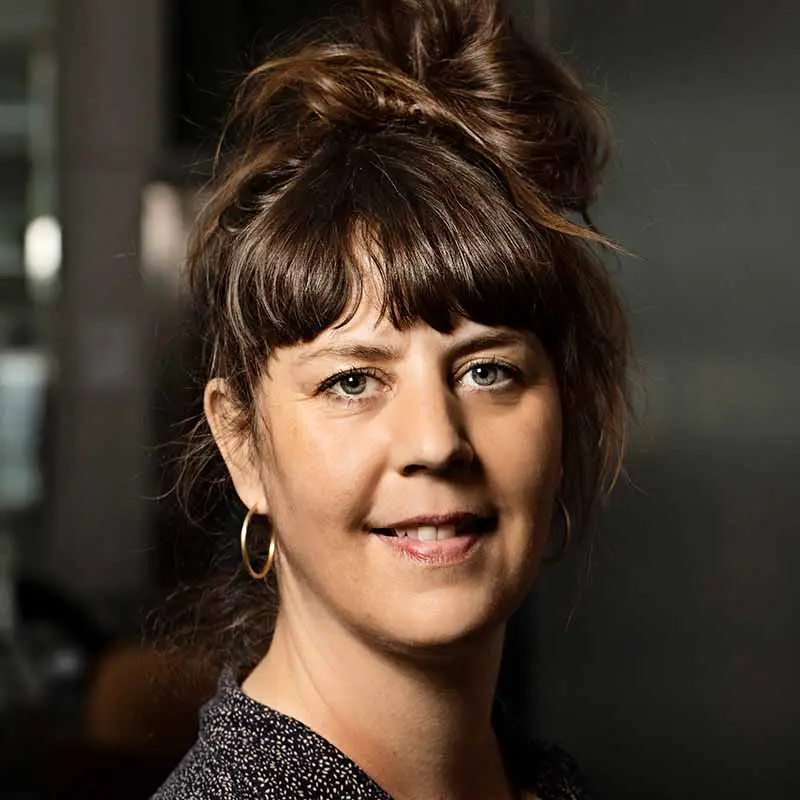
– The trade union HK/Denmark with 213 000 members has a competence fund where members can find a large number of courses, for example in digital skills and digital understanding. One of the sectors, HK Municipal, has developed the courses “Future Skills,” which include technology and artificial intelligence (AI). It is an extensive collaboration between the social partners in the municipalities and HK with a focus on digital skills and not least AI in task solving, says career consultant at HK, Nanna Heinø Mortensen.
Her job in the union is to support cooperation across departments and sectors to develop and drive career initiatives for members. She also initiates efforts for skills development of specific groups, for example members in areas that are undergoing significant changes and may die out due to AI.
– As a union, we have representatives in the workplaces. They also have insight into opportunities for skills development and know where to apply for funding, says Mortensen, who is also a member of the Guidance Network in NVL.
Access to education where you live
A look back at the European Year of Competence:
– What has been done in Norway in connection with the European Year of Skills – activities and goals?
– From the Norwegian side, the goal has been that the Year of Skills should help provide good and flexible training and education throughout the country, to meet the labour market’s need for skills and ensure that more people have access to education where they live, says Margrethe Svensrud.
– In addition, it has been a goal to increase the mobilization of the labour force reserve by allowing more people with little formal skills to take a vocational certificate or other education that strengthens their opportunities for a permanent attachment to the labour market.
Svensrud also says that Norway has chosen to use the European Year of Skills to strengthen already ongoing processes and measures, rather than implementing pure EYS initiatives. She points to two measures that have been important to highlight: One is the introduction of the right to complete upper secondary education and the right to vocational retraining. The other one is the tripartite cooperation on skills policy with emphasis on the Competence Reform Committee and the industry programmes.
Presented experiences in Skellefteå
– Has there been cooperation in the Nordic region in connection with The European Year of Skills?
– Yes. Since this is a common European initiative, we also have a unique opportunity to cooperate and share experiences across countries. EU EMPL (the EU’s Employment and Social Policy Committee) established a network with national coordinators from the various countries, and it has been very useful and inspiring in terms of sharing experiences and spreading information. The Nordic coordinators have also had bilateral dialogue, especially Norway, Sweden, and Finland. We also collaborated on presenting our experiences from EYS at the Swedish NMR conference in Skellefteå in April.
Mapping tool
The EU wants to develop a “skill taxonomy,” a mapping tool that connects the need for labour, job seekers, and workers. This seems to be in a very early phase. Efforts for more learning and skills development in each workplace continues with full force in the Nordic countries. The vision 2030 for Nordic cooperation signals a clear need for new knowledge:
“Together, we will promote green growth in the Nordic Region based on knowledge, innovation, mobility and digital integration.”
